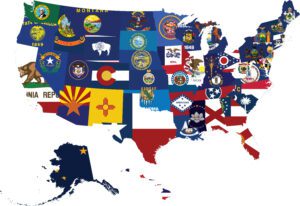Domicile Selection for Captive Insurance: Maximizing Success in a Complex Landscape
Many middle-market businesses are turning to captive insurance in today’s challenging risk management and economic climate. A captive is really just a choice to own your own insurance company. Owning your own insurance company may sound daunting, but it’s really not. Businesses have been setting up and owning their own insurance companies since the 1950s, and more and more middle-market companies have made this choice in the last 2 decades. Interestingly, insurance is not regulated by the federal government. It’s regulated by the states. So, if you decide to own your own insurance company, you will need to pick a home for it where it receives its insurance license to protect your business. This home is known as a domicile.
A domicile refers to the jurisdiction where a captive insurance company is incorporated and operates. It is a crucial concept in the captive formation process, as the choice of domicile can have significant implications for the company’s regulatory environment, legal framework, taxation, and overall success. In this context, we will explore the meaning of domicile, discuss its importance in captive formation, and examine the key attributes to consider when selecting the appropriate domicile for a captive insurance company.
Before all else, it is crucial to understand what exactly a domicile entails. A domicile represents the legal home of a captive insurance company. It determines the jurisdiction under which the company is subject to regulatory oversight and legal requirements. Domicile jurisdictions often have specific laws and regulations governing captive insurance designed to provide a favorable environment for these specialized entities. These laws outline the permissible lines of business, capitalization requirements, reporting obligations, and other operational aspects.
The choice of domicile is one of the key steps in the captive formation process. It directly influences the captive’s ability to operate efficiently and effectively. A well-suited domicile can offer favorable regulations, streamlined licensing procedures, and robust infrastructure, thereby facilitating the establishment and ongoing operations of the captive. On the other hand, a poor choice of domicile can result in burdensome regulatory requirements, limited market access, and unfavorable tax implications, which can hinder the captive’s success.
When considering the selection of a domicile for a captive insurance company, several key attributes should be taken into account:
1. Regulatory environment
2. Political Stability
3. Active Captive Association
4. Tax Status
5. Support Services
First, the regulatory environment ensures that the domicile jurisdiction has specific laws and regulations in place for captive insurance, providing a clear and supportive framework for their operation. A robust regulatory environment promotes transparency, stability, and credibility within the captive industry, which can attract businesses looking to establish captives.
Second, political stability ensures a predictable and secure environment for captive operations. A jurisdiction with a stable political climate reduces the risk of sudden policy changes or regulatory upheavals that could adversely impact the captive company. By selecting a domicile with a stable political landscape, captives can benefit from a more predictable business environment.
Third, the presence of an active captive association is another attribute to consider. An active captive association indicates a supportive and collaborative captive community within the domicile. These associations provide a platform for staying updated on industry trends and regulatory changes, potentially adopting favorable changes to their legislation frequently.
Fourth, Tax status is another crucial consideration for captives. Different domiciles have varying tax policies that can significantly impact the financial viability of a captive. It is essential to assess the tax rates, deductions, exemptions, and any potential benefits offered by the domicile jurisdiction. An attractive tax status can contribute to the captive’s profitability, while unfavorable tax implications can erode the captive’s financial advantages.
Fifth, the availability of support services is a key attribute to look out for in a domicile. A strong captive ecosystem includes a wide range of professional services, such as captive management firms, legal advisors, auditors, and banking institutions with expertise in captive insurance. These support services are instrumental in setting up and operating a successful captive. The presence of a well-established network of service providers simplifies the process and ensures that captive companies can access the necessary expertise and guidance.
Ultimately, the concept of domicile is integral to the captive insurance industry. Selecting the right domicile is a crucial step in the formation process, as it directly impacts the captive’s regulatory environment, legal framework, and overall success. A well-suited domicile can provide a supportive environment for captive operations, while a poor choice can lead to various challenges and limitations. By carefully considering these key attributes, captive insurance companies can establish themselves in a jurisdiction that aligns with their strategic goals and maximizes their chances of long-term success.


